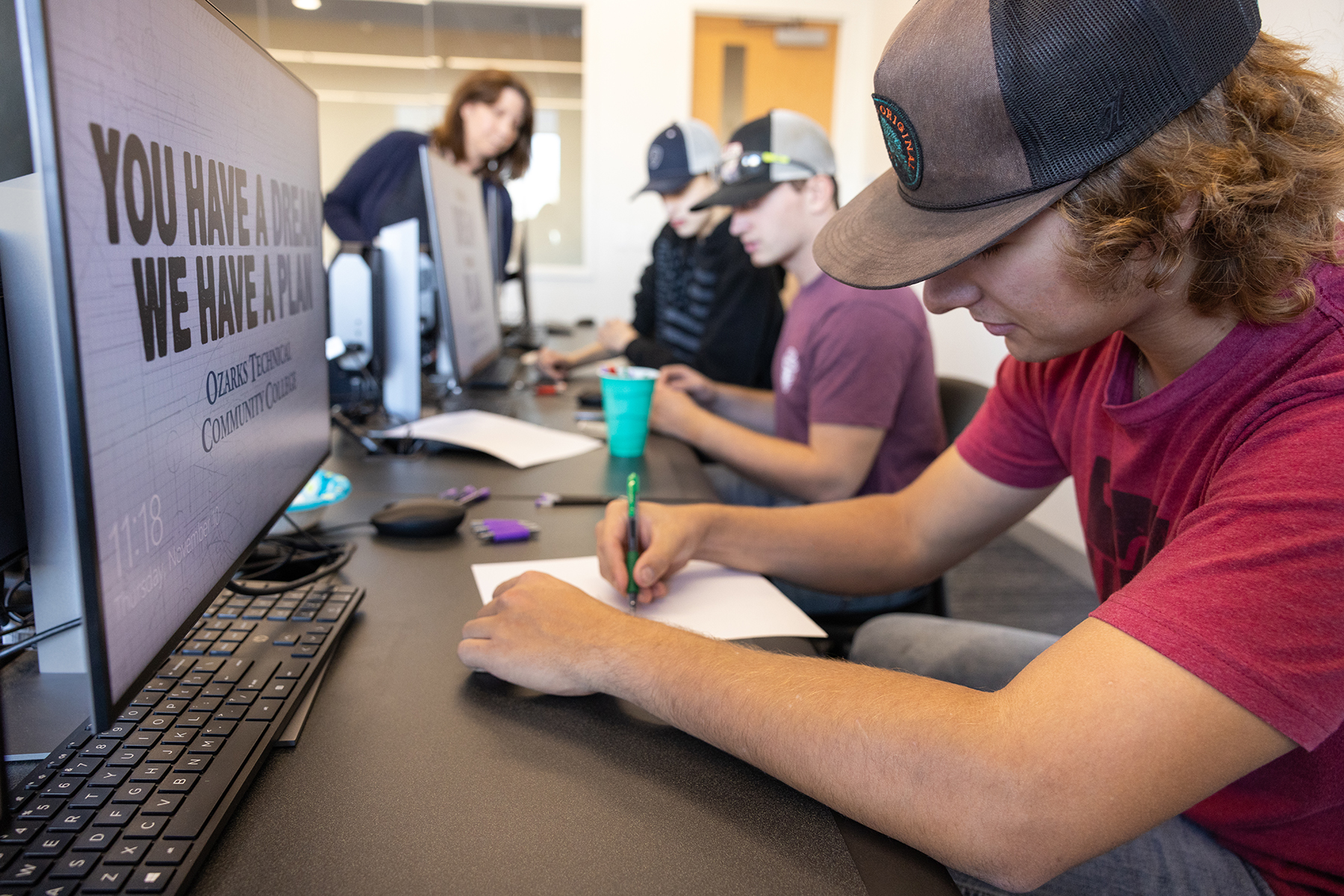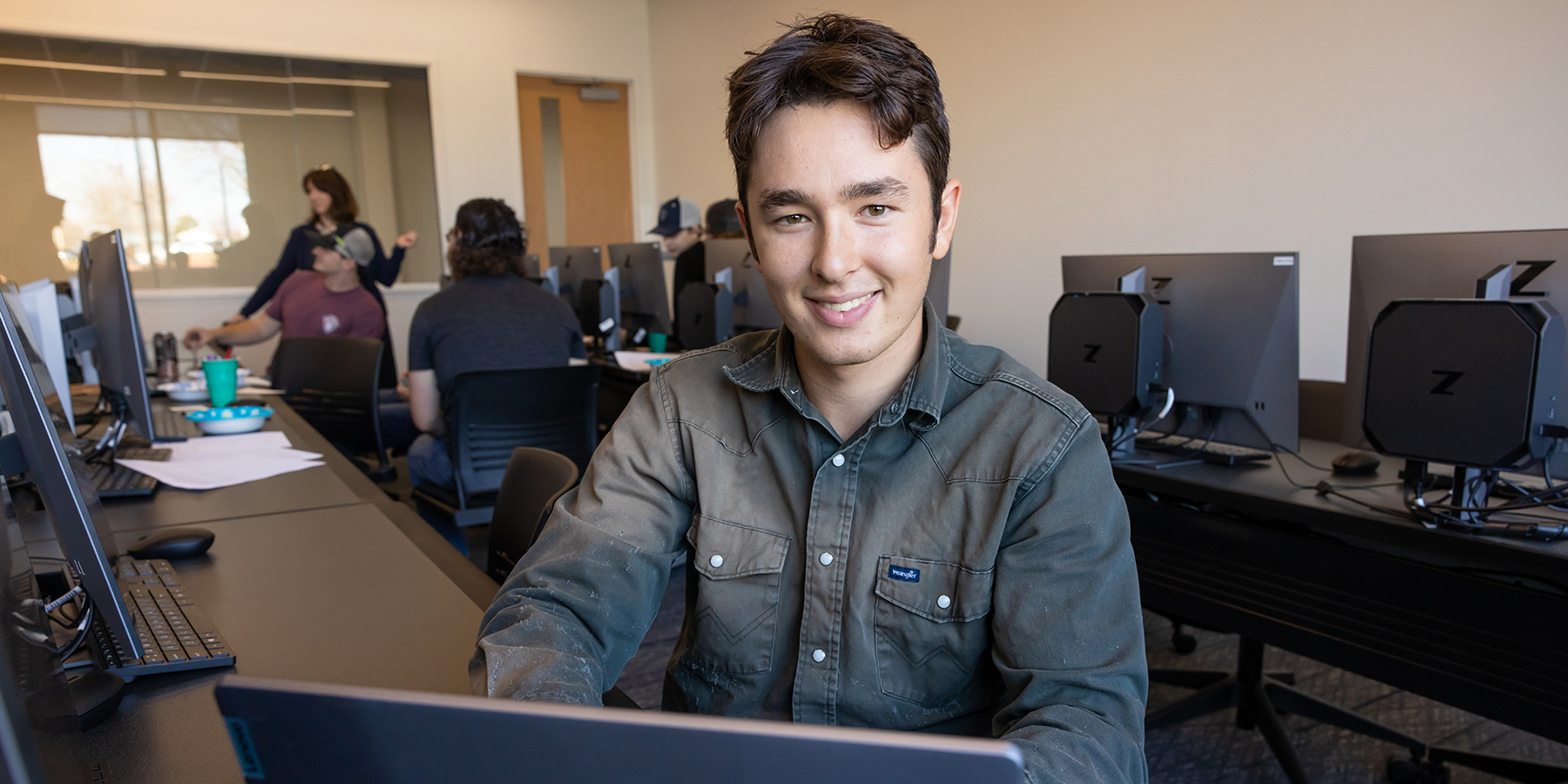In higher education, it is a common practice to offer science survey courses to non-science majors. While the official names for these courses may be “Basic Physics,” they are often referred to as “Physics for poets.” Most colleges offer several “for poets” courses, which feature wide-ranging technical concepts and little math.
However, there is no equivalent trope for STEM students (science, technology, engineering and math) in humanities courses. English for engineers? Writing for welders? Communications for chemists? Those don’t exist. While there are no specific humanities courses for STEM majors, hiring managers are looking for candidates with the skills taught in humanities courses. In a study by the National Association of Colleges and Employers, nearly three-quarters of companies wanted job candidates with strong writing skills.
When Ozarks Technical Community College opened the $40 million Robert W. Plaster Center for Advanced Manufacturing in the fall of 2022, it was an investment in its manufacturing programs. Manufacturing Department Chair Danelle Maxwell also hoped to invest in manufacturing students’ writing skills. She worked with English Instructor Jane Cowden to develop English 101 for Manufacturing, which debuted in a PMC classroom this fall.
“Technical writing is a great fit for manufacturing students, and I wanted to show them how beneficial it will be for their careers,” Cowden said. “I wanted to introduce them to some of the technical writing concepts in their composition class.”
While it may not be called “Media Writing for Manufacturers,” Cowden’s class could easily be named “Writing for the Workforce.” Cowden’s assignments show these future manufacturers and designers the writing style they will need for their careers, such as problem/solution proposals or regulatory compliance plans.

“After taking this class, I carefully consider what I’m putting down on paper and think about what I want to convey to my audience,” said Teddy Wallace, an automation and robotics student.
Cowden is well-qualified to teach English 101 for Manufacturing. Before coming to OTC more than a decade ago, Cowden worked as a technical writer at local manufacturers Paul Mueller and Reckitt Benckiser. As Cowden developed the curriculum for the class, she drew on her experience and paired students with industry partners to have them work on real-world assignments.
First-year drafting and design student Valeria Callejas’s industry partner taught her the importance of meeting client deadlines. Callejas researched the issue and learned that many architectural firms that struggle to meet deadlines do not have project managers. She wrote a hypothetical proposal to hire a project manager.
“Most English classes are general,” Callejas said. “This class is more specific to my career. It’s been great.”
Kendel Beard will graduate in the spring with a degree in manufacturing technology. As he researched a problem-solution assignment with his industry partner, he discovered an industry-wide issue.
“I realized many businesses don’t have a process for recognizing problems,” Beard said. “Now, I’m working on a proposal to develop a system that allows an institution to identify a problem, determine its causes and pair it with an effective solution.”
For Cowden, creating partnerships with businesses achieved two goals. They gave her students real-world assignments, and they got an idea of what it’s like to work in manufacturing, which Cowden hopes will make them better employees who will persist in their jobs.
“I’ve spoken to former colleagues who say many new employees quit after just a few weeks,” Cowden said. “I want my students to understand what a manufacturing job will entail. That way, they’ll be able to persevere and become long-term employees.”

